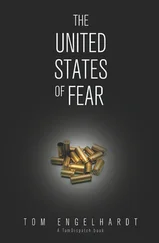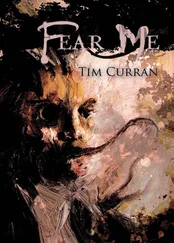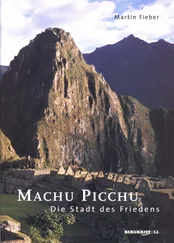I was a derision to all my people; and their song all the day.
— LAMENTATIONS 3:14
City haze shot through with morning sun. Buildings razed, buildings rising, dust drifting off the dirt streets drying in the morning air. Clank of carts on cobblestones, barrels unloaded, the men shouting, the mist burning off the river. Along Chestnut, along Walnut, along Market, they make their way, amid hollering and hammering and the smell of horse and mule shit. Open doors to taverns, men in bowler hats, bricks and shingles and the cart at the curb. The street sloping down toward the river and the docks.
Henry Sims regarded the poster as people jostled past on the sidewalk:
$200 REWARD!
RANAWAY FROM THE SUBSCRIBER, AT THE TIDES, FAIRHOPE,
VIRGINIA, ONE NEGRO, JOSEPH, AGED 19, 5 FEET AND 7 INCHES
IN HEIGHT; IS OF A LIGHT COPPER COLOR WITH GREEN EYES,
CLEVER AND PERSONABLE, AN EXCELLENT MIMIC; MAY WELL BE
TRYING TO PASS AS SPANISH OR AS FREEMAN. VERY PROFICIENT
PERFORMER ON THE BANJAR. HAD ON WHEN LAST SEEN, ROUGH
BROWN TROUSERS, WHITE DRESS SHIRT, A BLUE JACKET AND
PAIR OF NEW HUNTING BOOTS BELONGING TO THE UNDERSIGNED.
LIKELY HEADED FOR CINCINNATI, BOSTON, PHILADELPHIA, OR
NEW YORK. A REWARD OF $200 WILL BE GIVEN UPON HIS
DELIVERY TO HIS RIGHTFUL OWNER. JAMES STEPHENS, THE TIDES,
FAIRHOPE, VIRGINIA.
In the upper-right-hand corner, the silhouetted runaway, the shouldered stick with the bundle on the end, the frightened, caricatured black face. Not much of a likeness, he thought. In the distance, the river, steaming and shivering in the light morning breeze.
Three months earlier, Henry, born Joseph, had noticed a version of the same poster, offering $150. He was, apparently, rising in his former master’s esteem. Over the weeks, that poster faded and tore and was covered by others. Every vertical surface in Philadelphia was a riot of posters and handbills crowing and cajoling, some fresh and sharp, some buckling and peeling like birch bark, announcing performances by operatic artists, contortionists, orators, Shakespearean companies, comedic sketches, dramas at the Chestnut Street Theater, all competing for space and attention with the reward posters for those who, like himself, had made their way out of what the solemn members of the Vigilance Committee liked to call the House of Bondage.
He turned his attention to a larger poster, adjacent.
HELD OVER!!
AT
BARTON’s MINSTREL THEATER
THE ORIGINAL
VIRGINIA HARMONISTS
PURVEYORS OF ETHIOPIAN AIRS
PLANTATION JIGS
AND EVERY VARIETY OF
NEGRO JOLLITY
MESSRS. POWELL AND
DOUGLASS ON THE ENDS
UNRIVALLED HILARITY
MR. MULLIGAN WILL PERFORM HIS
SPECIALTY
“FIRE DOWN BELOW”
NIGHTLY
PERFORMANCES COMMENCE
AT 7 O’CLOCK
PUNCTUALLY
Above the text, an engraved depiction of five figures with black faces, seated in a semicircle, limbs jutting and jabbing, playing banjo, fiddle, tambourine, a set of bones. The troupes, in which white men blackened their faces with burnt cork and sang and played like Negroes, were beyond number, and popular beyond measure. The Virginia Minstrels, the Sable Harmonists, the Christy Minstrels, Sanford’s Minstrels, the Ethiopian Serenaders. Plantation Melodies, African Extempore, Essence of Old Virginny, Zip Coon, Jim Crow, Take Me Back to Dixie’s Land. .
No, Henry thought — take me not back to Dixie’s Land. You can have Dixie’s Land.
He hefted the sack in his hand, felt the light weight of the banjo with pleasure. Time, he thought, to purvey some Ethiopian airs. On a bright morning such as this he was still astonished at the feeling. To walk where you want to walk, as a free man. To look at the sunlight on the side of a brick building as a free man, to smell bread baking as a free man. To touch a tree, to tie your boot on the sidewalk, to enter a tavern, free. To know yourself to be more capable than most of the white men who, even here, condescend to you, and to be able to show it without fear of a whipping. To climb the stairs, to feel money in your pocket, as a free man. That was worth everything.
He turned and started down Walnut Street, toward the river. Like all musicians, he loved a river.
Ifirst saw Henry Sims on the corner of Chestnut and Front Streets, performing for the lunchtime idlers. He wore a bright-red flannel shirt buttoned at the neck despite the warm spring day, black suspenders, and a dark-gold, shallow-crowned straw hat which sat well back on his head, giving the impression of a halo.
That afternoon I was on my way to a dry goods shop where the troupe got fabrics at a discount. Powell had worked up a fem routine that we were planning to insert at the beginning of the evening’s second half, and I was going to purchase some crinolines that Rose had requested. In addition to my role as Brother Neckbones, I had installed myself as our manager, accountant, property master, and, importantly, costume consultant, in no small part because it gave me ongoing reason to have business with Rose.
I heard the sound of the banjo before I saw its source. The song was recognizable as “Old Dan Tucker,” but the tune was surrounded by a rowdy chorus of other tunes and half-tunes, banjo voices and lines of notes, all of which seemed to comment upon the main melody in tones of mockery, qualification, and encouragement.
I assumed there were at least two men playing, but as I approached the edge of the small crowd I saw a solitary, light-skinned Negro who was not only playing the banjo but dancing as well. The upper part of his body remained still except for his hands, but from hips to ground his legs had an independent life, shuttling from one position to another, in constant motion except for brief moments when he would hold still, as if daring you to fix his image in your mind. All the while he maintained a calm, enigmatic smile, as if he were merely sitting on a riverbank, watching the boats pass by.
Every one of us in the Virginia Harmonists had made it a point to study as many Colored musicians as we could track down. We were scholars of a sort: we conducted our studies in fields, in barns, on cabin porches, and on the docks. Yet I had never seen anything like what I was witnessing. Others played their instruments, with large or modest skill; perhaps they danced or sang or delivered a fragmentary monologue. But here was a true performer, in absolute command of his audience’s attention. His little dance figures mimicked the turns of the melody and rhythm, as well as the substance of the lyrics. When he sang
Combed his hair with a wagon wheel
And died with a toothache in his heel. .
he executed a maneuver with his ankles that made it appear as if the ground were sliding away under his feet. Arriving at the song’s refrain,
Get out the way, Old Dan Tucker. .
he would spring abruptly to one side with no apparent exertion, to the crowd’s audible delight.
Читать дальше










